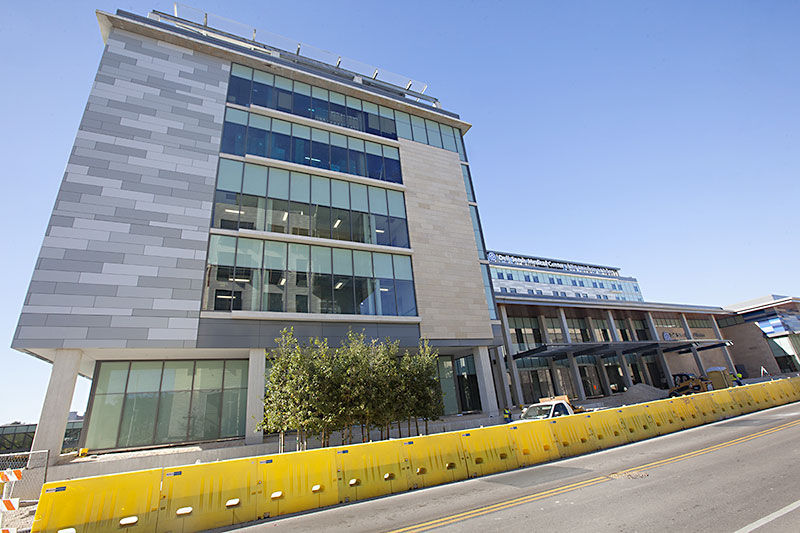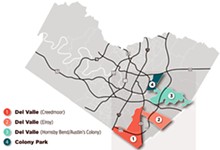Fred Lewis, Friends of “the Poor” Go to War on Central Health
Is there a doctor in the house?
By Michael King, Fri., Dec. 2, 2016
When Central Health won its bond election in 2012, the vote was widely heralded as a step forward toward improving health care in Travis County and Central Texas, specifically the care of underserved populations and the indigent. Among other things, the proposition promised "improved healthcare in Travis County, including support for a new medical school consistent with the mission of Central Health, a site for a new teaching hospital, trauma services, specialty medicine ... health clinics, training for physicians [and] other healthcare professionals ... and/or to obtain federal matching funds for healthcare services."
The health care district's major project thus far has been its partnership with the new University of Texas Dell Medical School, for which it has annually contributed $35 million ($105 million to date). The school's construction is not complete, but is already training its first class of physicians, while faculty and other staff have pursued community health projects. "Proposition 1 was about a medical school," says school dean Clay Johnston. "Creating a medical school takes time. But the school is critical to providing indigent care, and is a long-term investment, specifically in new and improved models of care for Travis County."
Not everyone is convinced. A small group of advocates argue that too much taxpayer money is being spent on the med school, and too little on direct care for the poor. On Nov. 15, they made that case before Travis County Commissioners Court, which is responsible for Central Health oversight. Isabel López-Aguilar told the court that it's not clear that sufficient funds are providing "appropriate services to the indigent," and called for a "comprehensive independent audit." That request was seconded by attorney Fred Lewis, who the day before had released a report charging that UT-Dell was not adequately accounting for the Health District funds, was commingling those funds with its general accounts, and had "misspent these funds for the poor on medical school operations, administration and education unrelated to providing [indigent] health care."
The court's response was mixed. Commissioners moved to keep a closer watch on Central Health funds, but were assured by the county auditor and their own legal counsel that the district and medical school are complying with the "affiliation agreement" between the parties and with state law governing health care districts. The court did not request an independent audit, although Judge Sarah Eckhardt said commissioners could revisit the matter.
Lewis is also one of two finalists to fill a vacant position on Central Health's board of managers, a joint selection of Commissioners Court and City Council, which could come to a consensus as early as next week. Should they appoint Lewis, it would put Central Health in the curious position of having a manager (one of nine) who has accused the health care district of violating state law.
Later, López-Aguilar told the Chronicle that her group (Help Ensure Accountable Leadership and Transparency in Health, or HEALTH) would like to have seen "stronger language" in the court's response, and specifically an independent audit. She remains unpersuaded that initial UT-Dell programs – e.g., a redesign of local orthopedic care that has significantly reduced wait times at public clinics – have done much to help the poor. Patients will "still be waiting years for access," she said. "They should be hiring more practitioners rather than training more practitioners." Lewis said Travis County would be issuing "some sort of self-serving report," and insisted that despite the Prop 1 vote, a health care district is bound by law to spend its funding directly on indigent care, and underwriting a medical school does not fulfill that mission. "I think the purpose is economic development," concluded Lewis. "I think it has nothing to do with helping the poor."
Spokespersons for Central Health and UT-Dell respond that some of the complaints – like commingling or inadequate accounting of funds – are simply false, and that criticisms of the medical school model are wrongheaded. Central Health Board Chair Katrina Daniel said it's impossible to directly hire enough specialists to address the regional need – "If we could have done it that way, we'd have done it years ago" – and that the medical school is essential to "developing a pipeline of physicians." She said the orthopedic program developed by Dell faculty had already cut the patient wait list nearly in half, and "patients in our system are already experiencing the benefits."
Johnston pointed as well to nascent programs in obstetrics and population health, and said UT-Dell "is heavily focused on the welfare of this community, and these initial programs are signs of the benefits to come."
State Sen. Kirk Watson, the foremost advocate of the bond campaign, said that Central Health and UT-Dell are proceeding as intended, and that state law does not limit district funding only to direct indigent care but rather provides broad discretion in the best methods of supplying that care. "The medical school just started," Watson said. "It's a little premature to be complaining, when literally the first students started a few months ago." He said "enormous progress has been made to fulfill the promise of the medical school," and that "this investment is just beginning."
Watson dismissed any widespread public skepticism about Central Health. "I talk to a lot of people," he said. "I don't think there is a perception that the promise isn't being lived up to. We're already seeing dividends in health care, and there are more dividends to come."
Got something to say on the subject? Send a letter to the editor.











